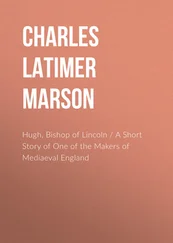Paul Vinogradoff - Villainage in England - Essays in English Mediaeval History
Здесь есть возможность читать онлайн «Paul Vinogradoff - Villainage in England - Essays in English Mediaeval History» — ознакомительный отрывок электронной книги совершенно бесплатно, а после прочтения отрывка купить полную версию. В некоторых случаях можно слушать аудио, скачать через торрент в формате fb2 и присутствует краткое содержание. Жанр: foreign_prose, Юриспруденция, История, foreign_edu, foreign_antique, на английском языке. Описание произведения, (предисловие) а так же отзывы посетителей доступны на портале библиотеки ЛибКат.
- Название:Villainage in England: Essays in English Mediaeval History
- Автор:
- Жанр:
- Год:неизвестен
- ISBN:нет данных
- Рейтинг книги:4 / 5. Голосов: 1
-
Избранное:Добавить в избранное
- Отзывы:
-
Ваша оценка:
- 80
- 1
- 2
- 3
- 4
- 5
Villainage in England: Essays in English Mediaeval History: краткое содержание, описание и аннотация
Предлагаем к чтению аннотацию, описание, краткое содержание или предисловие (зависит от того, что написал сам автор книги «Villainage in England: Essays in English Mediaeval History»). Если вы не нашли необходимую информацию о книге — напишите в комментариях, мы постараемся отыскать её.
Villainage in England: Essays in English Mediaeval History — читать онлайн ознакомительный отрывок
Ниже представлен текст книги, разбитый по страницам. Система сохранения места последней прочитанной страницы, позволяет с удобством читать онлайн бесплатно книгу «Villainage in England: Essays in English Mediaeval History», без необходимости каждый раз заново искать на чём Вы остановились. Поставьте закладку, и сможете в любой момент перейти на страницу, на которой закончили чтение.
Интервал:
Закладка:
Legal practice as to conventions.
The reader may well ask whether there are any traces of such an institution in practice, as it is not likely that Bracton would have indulged in mere theoretical disquisitions on such an important point. Now it would be difficult to find very many instances in point; the line between covenant and enfranchisement was so easily passed, and an incautious step would have such unpleasant consequences for landlords, that they kept as clear as possible of any deeds which might indirectly destroy their claims as to the persons of their villains 94 94 The later practice is well known. Any agreement with a bondman led to a forfeiture of the lord's rights. It may be seen at a glance that such could not have been the original doctrine. Otherwise why should the old books lay such stress on the mention of heirs?
. On the other hand, even privileged serfs would have a great difficulty in vindicating their rights on the basis of covenant if they remained at the same time under the sway of the lord in general. The difficulties on both sides explain why Fleta and Britton endorse only the chief point of Bracton's doctrine, namely, the implied manumission, and do not put the alternative as to a covenant when heirs are not mentioned. Still I have come across some traces in legal practice 95 95 Besides the case from the Note-book which I discuss in the text, Bracton, f. 199, is in point: 'Item esto quod villanus teneat per liberum servitium sibi tantum, nulla facta mentione de heredibus, si cum ejectus fuerit proferat assisam, et cum objecta fuerit exceptio villenagii, replicet quod libere teneat et petat assisam, non valebit replicatio, ex quo nulla mentio facta est de heredibus, quia liberum tenementum in hoc casu non mutat statum , si fuerit sub potestate domini constitutus. Ut in eodem itinere (in ultimo itinere Martini de Pateshull) in comitatu Essex, assisa noue disseisine, si Radulphus de Goggenhal.' The villain fails in his assize and there has been no manumission, still it seems admitted that in this case the villain has acquired liberum tenementum by the lord's act. How can this be except on the supposition that there is a covenant enforceable by the villain against the lord?
of contracts in the shape of the one discussed. A very interesting case occurred in Norfolk in 1227, before Martin Pateshull himself. A certain Roger of Sufford gave a piece of land to one of his villains, William Tailor, to hold freely by free services, and when Roger died, his son and heir William of Sufford confirmed the lease. When it pleased the lord afterwards to eject the tenant, this latter actually brought an assize of novel disseisin and recovered possession. Bracton's marginal note to the case runs thus: 'Note, that the son of a villain recovered by an assize of novel disseisin a piece of land which his father had held in villainage, because the lord of the villain by his charter gave it to the son [i.e. to the plaintiff], even without manumission 96 96 Bract. Note-book, pl. 1814: 'Nota quod filius villani recuperat per assisam noue disseisine terram quam pater suus tenuit in villenagio quia dominus villani illam dedit filio suo per cartam suam eciam sine manumissione.'
.' The court went in this case even further than Bracton's treatise would have warranted: the villain was considered as having the freehold, and an assize of novel disseisin was granted; but although such a treatment of the case was perhaps not altogether sound, the chief point on which the contention rested is brought out clearly enough. There was a covenant, and in consequence an action, although there was no manumission; and it is to this point that the marginal note draws special attention 97 97 F.W. Maitland tells me, that Concanen's Report of Rowe v. Brenton describes bond conventioners in Cornwall.
.
Waynage.
Again, we find in the beginning of Bracton's treatise a remark 98 98 Bracton, f. 6: 'Et in hoc legem habent contra dominos, quod stare possunt in judicio contra eos de vita et membris propter saevitiam dominorum, vel propter intollerabilem injuriam, ut si eos destruant, quod salvum non possit eis esse waynagium suum. [Hoc autem verum est de illis servis, qui tenent de antiquo dominico coronae, sed de aliis secus est, quia quandocunque placuerit domino, auferre poterit a villano suo waynagium suum et omnia bona sua.] Expedit enim reipublicae ne quis re sua male utatur.'
which is quite out of keeping with the doctrine that the villain had no property to vindicate against his lord; it is contradicted by other passages in the same book, and deserves to be considered the more carefully on that account. Our author is enumerating the cases in which the serf has an action against his lord. He follows Azo closely, and mentions injury to life or to limb as one cause. Azo goes on to say that a plaint may be originated by intollerabilis injuria , in the sense of corporeal injury. Bracton takes the expression in a very different sense; he thinks that economic ruin is meant, and adds, 'Should the lord go so far as to take away the villain's very waynage , i.e. plough and plough-team, the villain has an action.' It is true that Bracton's text, as printed in existing editions, contains a qualification of this remark; it is said that only serfs on ancient demesne land are possessed of such a right. But the qualification is meaningless; the right of ancient demesne tenants was quite different, as we shall see by-and-by. The qualifying clause turns out to be inserted only in later MSS. of the treatise, is wanting in the better MSS., and altogether presents all the characters of a bad gloss 99 99 See my article in the L.Q.R., i. 195.
. When the gloss is removed, we come in sight of the fact that Bracton in the beginning of his treatise admits a distinct case of civil action on the part of a villain against his lord. The remark is in contradiction with the Roman as well as with the established English doctrine, it is not supported by legal practice in the thirteenth century, it is omitted by Bracton when he comes to speak again of the 'persona standi in judicio contra dominum 100 100 Bracton, f. 196-202.
.' But there it is, and it cannot be explained otherwise than as a survival of a time when some part of the peasantry at least had not been surrendered to the lord's discretion, but was possessed of civil rights and of the power to vindicate them. The notion that the peasant ought to be specially protected in the possession of instruments of agricultural labour comes out, singularly enough, in the passage commented upon, but it is not a singular notion in itself. It occurs, as every one knows, in the clause of the Great Charter, which says that the villain who falls into the king's mercy is to be amerced 'saving his waynage.' We come across it often enough in Plea Rolls in cases against guardians accused of having wasted their ward's property. One of the special points in such cases often is, that a guardian or his steward has been ruining the villains in the ward's manors by destroying their waynage 101 101 Coram Rege, 15 Edw. I, m. 18: '… licet habeant alia averia per que distringi possent distringit eos per averia de carucis suis quod est contra statutum domini Regis.' (Record Office.)
. Of course, the protection of the peasant's prosperity, guaranteed by the courts in such trials, is wholly due to a consideration of the interests of the ward; and the care taken of villains is exactly parallel to the attention bestowed upon oaks and elms. Still, the notion of waynage is in itself a peculiar and an important one, and whatever its ultimate origin may be, it points to a civil condition which does not quite fall within the lines of feudal law.
Villains not to be devised.
Another anomaly is supplied by Britton. After putting the case as strongly as possible against serfs, after treating them as mere chattels to be given and sold, he adds, 'But as bondmen are annexed to the freehold of the lord, they are not devisable by testament, and therefore Holy Church can take no cognisance of them in Court Christian, although devised in testament.' (I. 197.) The exclusion of villains is not peculiar to them; they share it with the greater part of landed possessions. 'As all the courts of civil jurisdiction had been prohibited from holding jurisdiction as to testamentary matters, and the Ecclesiastical Courts were not permitted to exercise jurisdiction as to any question relating to freehold, there was no court which could properly take cognisance of a testamentary gift of land as such 102 102 Spence, Equitable Jurisdiction, i. 136.
.' The point to be noted is, that villains are held to be annexed to the freehold, although in theory they ought to be treated as chattels. The contradiction gives us another instance of the peculiar modification of personal servitude by the territorial element. The serf is not a colonus, he is not bound up with any particular homestead or plot of land, but he is considered primarily as a cultivator under manorial organisation, and for this reason there is a limitation on the lord's power of alienating him. Let it be understood, however, that the limitation in this case does not come before us as a remnant of independent rights of the peasant. It is imposed by those interests of the feudal suzerain and of the kin which precluded the possibility of alienating land by devise 103 103 The Mirror of Justices, p. 110, follows Britton in this matter. This curious book is altogether very interesting on the subject of villeinage, but as its information is of a very peculiar stamp, I have not attempted to use it currently on the same level with other authorities. I prefer discussing it by itself in App. III.
.
Интервал:
Закладка:
Похожие книги на «Villainage in England: Essays in English Mediaeval History»
Представляем Вашему вниманию похожие книги на «Villainage in England: Essays in English Mediaeval History» списком для выбора. Мы отобрали схожую по названию и смыслу литературу в надежде предоставить читателям больше вариантов отыскать новые, интересные, ещё непрочитанные произведения.
Обсуждение, отзывы о книге «Villainage in England: Essays in English Mediaeval History» и просто собственные мнения читателей. Оставьте ваши комментарии, напишите, что Вы думаете о произведении, его смысле или главных героях. Укажите что конкретно понравилось, а что нет, и почему Вы так считаете.












